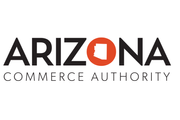
Phoenix has always been known as a small business powerhouse. Apparently the smallest of the small are becoming a big economic engine for the region.
In Phoenix, the number of so-called microbusinesses grew 65% from the first quarter of 2020 to the first quarter of 2021, the 10th largest gain in the country, according to the July 2021 Venture Forward Report, part of a research effort led by Tempe-based web domain registrar GoDaddy to better understand these tiny businesses and how they create jobs and boost household income across the country.
GoDaddy specifically defines a microbusiness as a discrete domain with an active website, including companies, nonprofits, causes or ideas like email, payments or security. Ninety percent of the companies surveyed by GoDaddy have 10 or fewer employees and many of them operate as “soloprenuers” doing this work on the side.
The Venture Forward project initially started in 2018, but the research took on a new importance during its public launch in April 2020 as the Covid-19 pandemic started to spread and reshape the economy.
Many small businesses closed for good in the past year, but GoDaddy’s research found that online microbusinesses flourished during the pandemic, meaning that their collective economic clout could be overlooked.
GoDaddy (Nasdaq: GDDY) estimates there are approximately 20 million microbusinesses in the country and their ranks have swollen during the past 17 months as people were laid off from other work or decided to focus on their business full time.
The study also found that adding one online microbusiness per 100 people increases household income by $485 and that each microbusiness an entrepreneur creates, on average, two or more jobs in the community even if the microbusiness itself doesn't have employees.
During a virtual address on June 30, GoDaddy CEO Aman Bhutani said this research aims to better understand and better serve the people that run these microbusinesses.
“The Venture Forward dataset is helping us understand this population in a way policymakers never have before," he said. “Because these microbusinesses are either too small or too new, most operate below the radar of traditional methods of economic tracking.”
GoDaddy has partnered with outside institutions including Arizona State University, University of Iowa, UCLA’s Anderson Forecast and the Milken Institute to conduct research on the dataset and produce more findings.
'A hidden layer'
GoDaddy has taken this project outside the company and into city halls across the country as well. Its first partnership was with the city of Gilbert. Alex Rosen, director of Venture Forward, said that before the pandemic some of these insights were simply nice to know, but now they’re helping inform economic recovery.
“This was previously a hidden layer of the economy,” she said in an interview. “We now know there's tons, millions of invisible hands and micro hands, who are helping really drive the economy in a very positive way.”
Rosen said officials in Gilbert used findings from Venture Forward to better understand the 35,000 microbusinesses in the city, modify their pandemic response and allow microbusinesses to access millions of dollars in CARES Act funding as a result.
GoDaddy has also worked with city officials in Detroit, Baltimore, Chicago and other cities. The data is freely available online so other cities have found it on their own; In Denison, Texas officials found Venture Forward and used it as inspiration to start their own Covid-19 recovery program.
Impact on Black communities
The study has also uncovered more detail on how microbusinesses have an outsized impact in Black communities.
GoDaddy found that last year the number of new business starts increased by 60% compared to 2019; In majority Black ZIP codes new business start grew 125% during the same period.
Robert Brown, senior director of Venture Forward research and insights, said that Black communities across the country adapted to the pandemic by grabbing their bootstraps.
“These communities were potentially more affected by the Covid downturn, whether that's through service jobs or maybe lower paying jobs, but their reaction to that was to kind of grab their bootstraps and pull them up and go and produce something to help move their family forward when their job was displaced.”
Venture Forward also found that the federal government’s stimulus checks played a big role in Black communities; Microbusiness startups increased more in majority-Black ZIP codes following the disbursal of the checks than it did in ZIP codes where Blacks are in the minority.
Why do this?
GoDaddy describes the project as a multiyear research effort and Brown said there’s no end date set.
GoDaddy's primary customers are business owners and entrepreneurs who need websites, so on some level Venture Forward does help the company to simply better understand its customer segmentation. But Brown said its purpose is much deeper than that.
Venture Forward doesn’t generate any revenue for the company and it isn’t a marketing activity, but it does tie back to the company’s reason for existing, he noted.
“Our mission is to radically shift the global economy toward micro businesses,” Brown said. “Our mission as a company aligns with a lot of what we're hearing from local politicians in terms of creating that fairness and equality of opportunity. So we're uniquely positioned to do that.”











